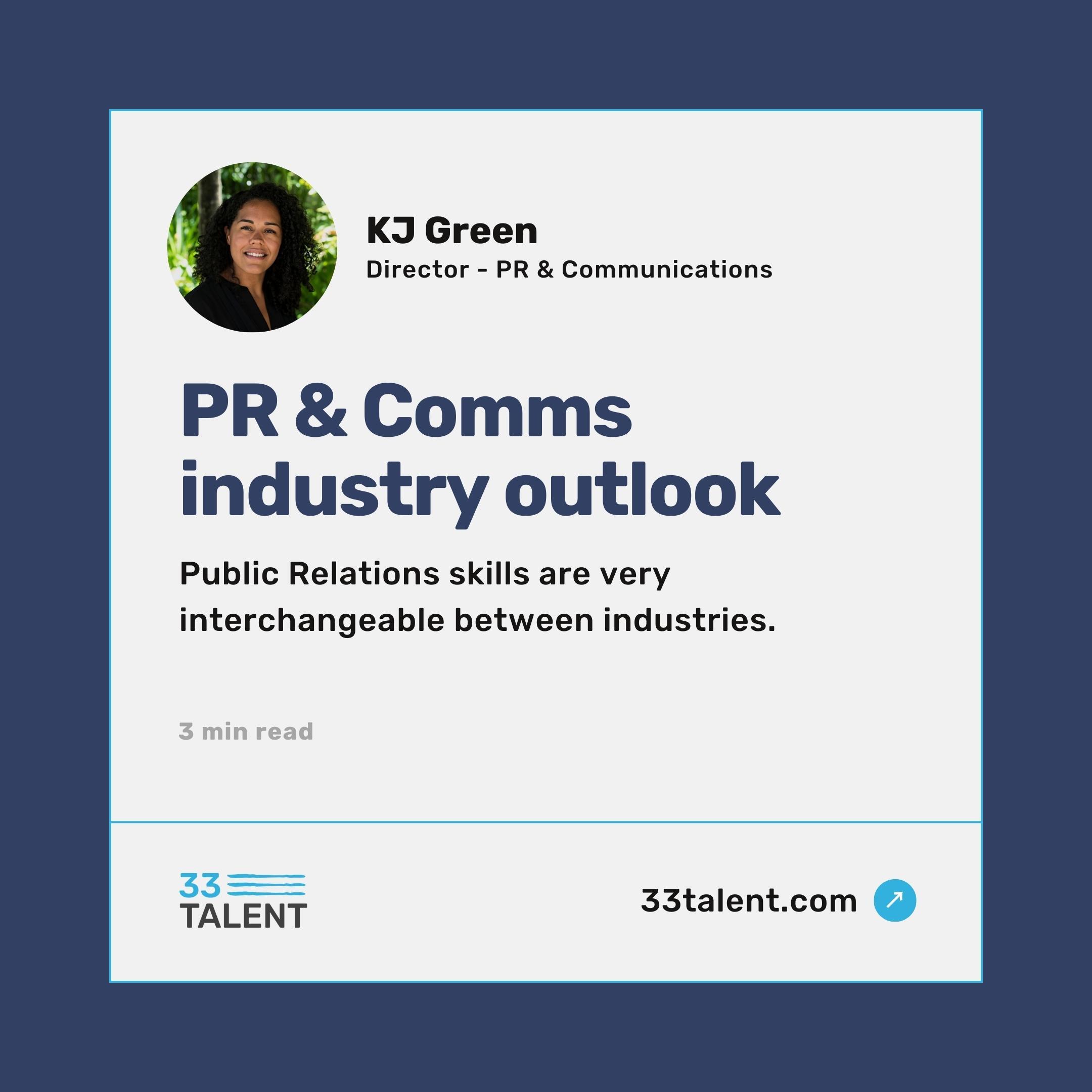The scrabble for talent is starting to slow down, which is a relief for most in the industry. In its place, we're seeing a return to strategic thinking and longer-term planning when making hires.
This will mean companies can afford to be more considered in their hires, which will work out well for the candidates and companies alike. When companies are less inclined to hire under pressure, more due diligence is put into skills and cultural matching, including assessments and more people being involved in making the decision.
As the market changes, candidates will need to make sure their next move is a long one as short stints will be tolerated less. Use this to your advantage and grow skills with depth. On the salary range side, we’ve seen an increase in base salaries particularly in the junior-level roles.
"It is exciting times for public relations professionals. However, the PR profession must evolve to ensure that we remain relevant. PR is no longer only about working with the media. Today, we are ESG leaders, brand ambassadors, social media experts, marketers, risk managers, and more. The strong support we have received from organising a summit like this is proof that the industry is indeed shifting and that change is becoming increasingly necessary." - Vanessa Wan, Chairperson of the IPRS PRISM Summit and IPRS Council Member.
PR & Comms roles are now becoming more specialised - encompassing public relations, communications, social media. and more. The good news is, skills utilised in a PR role are extremely interchangeable between industries.
